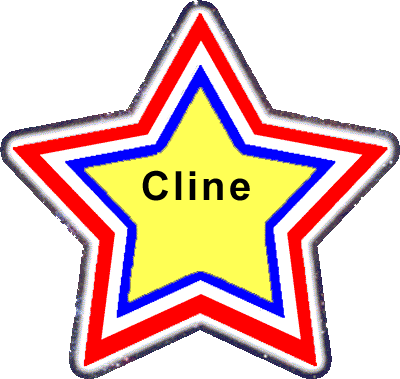 |
ALPHABETICAL BRAIN™ VOCABULARY
HUMANIST HUB
OF SECULAR SCIENCE STARS
ERIC CLINE
September 6, 2021

Note:
Eric H. Cline, is Professor of Classics and Anthropology, Director of the Capitol Archaeological Institute, and former Chair of the Department of Classical and Near Eastern Languages and Civilizations at The George Washington University, in Washington DC. A National Geographic Explorer, Fulbright scholar, and NEH Public Scholar with degrees from Dartmouth, Yale, and the University of Pennsylvania, he is an active field archaeologist with more than 30 seasons of excavation and survey experience in Israel, Egypt, Jordan, Cyprus, Greece, Crete, and the United States, including ten seasons at the site of Megiddo (biblical Armageddon) in Israel and eight seasons at Tel Kabri, also in Israel, where he is currently Co-Director.
Cline was the winner of the 2014 "Best Popular Book" award from the American Schools of Oriental Research for his book "1177 BC: The Year Civilization Collapsed," which was also considered for a Pulitzer Prize, a three-time winner of the Biblical Archaeology Society's "Best Popular Book on Archaeology" Award (2001, 2009, and 2011). Cline is a popular lecturer who has appeared frequently on television documentaries and has won national and local awards for both his research and his teaching.
In addition, he is the author or editor of more than one dozen books and almost 100 articles, and the developer of several recorded lecture courses. His previous books that were written specifically for the general public include "The Battles of Armageddon: Megiddo and the Jezreel Valley from the Bronze Age to the Nuclear Age" (2000), "Jerusalem Besieged: From Ancient Canaan to Modern Israel" (2004), "From Eden to Exile: Unraveling Mysteries of the Bible" (2007), "Biblical Archaeology: A Very Short Introduction" (2009), "The Trojan War: A Very Short Introduction" (2013).
The following three online book outlines and reviews should be read throughout the Humanist Galaxy of curious thinkers:

Book #1
1177 BC:
The Year Civilization Collapsed
[Series: Turning Points in Ancient History]
by Eric H. Cline
Princeton University Press, 2014
(i-xx, 241 pages with many maps)
"The book tells the story of the collapse of the ancient world around 1177 BC. At that time marauding groups known only as the "Sea Peoples" invaded Egypt. The pharaoh's army and navy managed to defeat them, but the victory so weakened Egypt that it soon slid into decline, as did most of the surrounding civilization. After centuries of brilliance, the civilized world of the Bronze Age came to an abrupt and cataclysmic end. Kingdoms fell like dominoes over the course of just a few decades. No more Minoans or Mycenaeans. No more Trojans, Hittites, or Babylonians."
"The thriving economy and cultures of the late second millennium BC, which had stretched from Greece to Egypt and Mesopotamia, suddenly ceased to exist, along with writing systems, technology, and monumental architecture. Did the Sea Peoples cause the collapse or had more complicated causes converged in that area of the world?"
================ and ===============
Book #2
"THREE STONES MAKE A WALL
The Story of Archaeology,
by Eric H. Cline and
illustrated by Glynnis Fawkes.
Princeton University Press, 2017
(455 pages)
"The book was published in 2017. This lively and essential introduction to the story of archaeology tells the story of the pioneering digs of the eighteenth century to the exciting new discoveries being made today. The book traces the history of archaeology from an amateur pursuit to the cutting-edge science it is today by taking the reader on a tour of major archaeological sites and discoveries, from Pompeii to Petra, Troy to the Terracotta Warriors, and Mycenae to Megiddo and Masada. Cline brings to life the personalities behind these digs, including Heinrich Schliemann, the former businessman who excavated Troy, and Mary Leakey, whose discoveries advanced our understanding of human origins."
"The discovery of the peoples and civilizations of the past is presented in vivid detail, from the Hittites and Minoans to the Inca, Aztec, and Moche. Along the way, the book addresses the questions archaeologists are asked most often: How do you know where to dig? How are excavations actually done? How do you know how old something is? Who gets to keep what is found?"
================ and ===============
Book #3
FROM EDEN TO EXILE:
Unraveling Mysteries of the Bible,
by Eric Cline
National Geographic, 2007
(i-xv, 239 pages with maps).
"Eric Cline uses the tools of his trade to examine some of the most puzzling mysteries from the Hebrew Bible and, in the process, to narrate the history of ancient Israel. He lays out each mystery, evaluates all available evidence — from established fact to arguable assumption to far-fetched leap of faith — and proposes an explanation that reconciles Scripture, science, and history."

Click or Tap Links to Outlines and Reviews
Book #1:
1177 BC:
The Year Civilization Collapsed
OR
Book #2:
THREE STONES MAKE A WALL:
The Story of Archaeology
OR
Book #3:
FROM EDEN TO EXILE:
Unraveling Mysteries of the Bible.

Click or Tap Star to Return to Humanist Galaxy

RETURN TO THE HUMANIST GALAXY
OF SECULAR SCIENCE STARS
ALPHABETICAL BRAIN™ VOCABULARY

produced by
Infinite Interactive Ideas™
|
|
 |